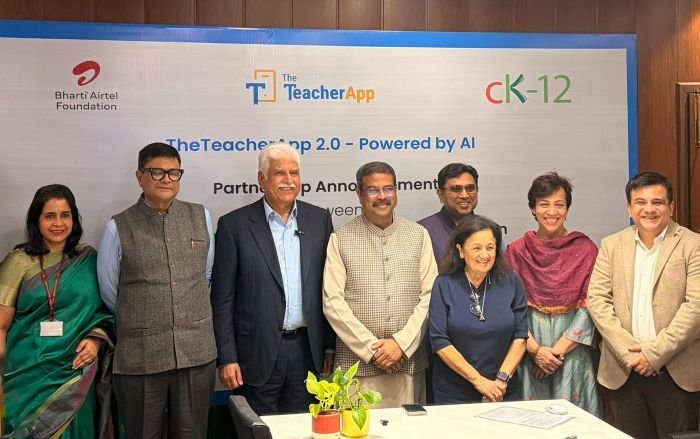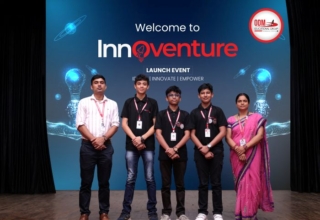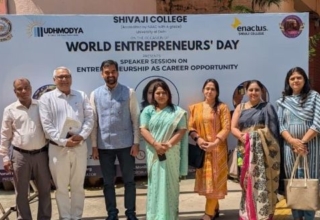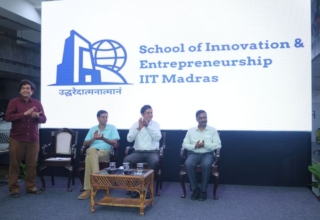

When former President Dr APJ Abdul Kalam was urging almost a beeline of student delegations (going to meet and get inspired from him during his Presidency), to become job creators and not job seekers, most of these teenagers didn’t quite understand how they can be. And many of those schools who made these visits a PR and competitive exercise as well never bothered to build on the vision of the great President.
Nevertheless, life has come full circle and after more than a decade of his prophecy and urgency, India is moving towards creating a supporting ecosystem for entrepreneurships and innovations as never before. A few important intended or unintended developments have also brought entrepreneurships from nowhere to core. The slowing economy, loss of traditional jobs, increasing share of tech economy—everything has forced hand by the government, which has in its own wisdom decided to remain a step ahead by announcing a target of $ 5 trillion economy by 2025 and creating a conducive environment for wealth creation through repealing of several impediments legal, notional as well systemic besides incentivizing startups.
Already some 50, 000 startups have tried their luck and it is a trend that is catching up fast and defining New India. And this is an answer to the requirement of 300 million more jobs that are needed to be created in next decade. Clearly relying on existing industry is not enough. So, high impact entrepreneurship with more chances of success is the new paradigm in making. In this emerging ecosystem, institutions of learning more so of higher education, have a key role as against the previously held view that entrepreneurs can’t be created in universities and higher education is not a pre-requisite for creating or running a business.
Dr. Dishan Kamdar, Vice-chancellor of Pune’s FLAME University puts it rather unequivocally by saying, “Education institutions have a role to play to facilitate this big change. Entrepreneurship has to be a key focus area and a symbiotic relationship between government, industry and institutions. We are entering an era of collaboration than competition.” He adds that there are two big challenges in this space, one to involve more women and two to scout for talent beyond big cities.
His own university building on a series of initiatives from setting up of the Centre for Entrepreneurship and Innovation and creation of own ecosystem from FLAME Origins Program, FLAME Pathblazer, FLAME Incubator, FLAME Entrepreneurship Summit to FLAME Coworking Space, has come a long way and crowned it with a new Postgraduate Program in Entrepreneurship and Innovation’ (PGPEI).
In his keynote at the launch of this program held at a specially convened conference, ‘High Impact Entrepreneurship and Innovation’ at FLAME campus, Monish Darda, co-founder and CTO, ICERTIS—a Unicorn from Pune, said, “The ethos of a vibrant economy is deeply rooted in entrepreneurship and innovation. As India comes of age as a world power that influences the future of the world, it is critical that we nurture, protect and celebrate this ethos.” Darda, a serial first generation entrepreneur, instrumental in creating two unicorns out of 25 in India, is himself an awe inspiring case study. Co-founder of Websym Technologies, Icertis and CloudMoyo, he shared a few critical lessons from his exciting journey. “One you have to be lucky and then team around you is critical. If you get right people, who bridge the gaps and are more aligned with your goal and you are ready take emotion out of business and live a life for building your enterprise in next 10 years, you’re at it,” he said.
Interestingly, India today has 24 unicorns and these are expected to touch about 100 in next five years. And this is being helped by a growing startup ecosystem, which is third largest in the world and startup funding is also growing. In opinion of many this is a golden age for startups in India. According to Dr Aravind Chinchure, chief mentor, FLAME University, who is also founder CEO of QLeap Academy, it is not only about business leadership but collaborations and for that you need more and more entrepreneurial workers. Scale is not achieved by design alone; it is participatory success and believing. Speaking about entrepreneurship in India, Prasanna Krishnamoorthy, founder, Upekkha said, “Today in India entrepreneurship is more important than ever before – huge number of young people are looking for jobs with shrinking number of jobs available. The only way to get out of this trap is for entrepreneurs to build high growth businesses that can employ large number of people across skill levels. Many small businesses don’t scale up because founders lack entrepreneurial skills that can help them identify markets/products and build for scale. Here education institutions have a role to play.”
In one of the panels on ‘Entrepreneurship and Innovation on Campus’ Dr. Bharat Damani – Chair Entrepreneurship, FLAME University, talked about millennial mindset and attitude, who are a different generation altogether. “They have freedom on platter, aren’t scared of teachers and have a mind of their own. This has transformed teachers as resource persons, coaches and facilitator,” he added. Experiential learning and innovations has better impact. Studying entrepreneurship in a university setting like FLAME bring diverse perspectives and shapes a certain kind thought process. Even IITs, much before the emphasis on liberal arts, taught these courses at their campuses to develop holistic persons. Ashwini Deshpande – Founder, Elephant Design while offering insights into importance of design in starups said validation of idea by the market is necessary for success, so is empathy with users.
Darshan Doshi, Director, FLAME Centre for Entrepreneurship and Innovation felt that businesses and start-ups that need a 10X growth over the next 3 to 5 years cannot think and operate the way they have been operating so far. To create a strong impact, people need a more entrepreneurial mindset and skillset. Moreover, the learning needs to be experiential and contextual.
India has no dearth of talent and country’s next wave of growth will be driven by increasing number of new age entrepreneurs. A New India is shaping as entrepreneurship is finding more acceptance and support. It is becoming mainstream and universities like FLAME, will lead this transformation in coming years.
… By Autar Nehru








